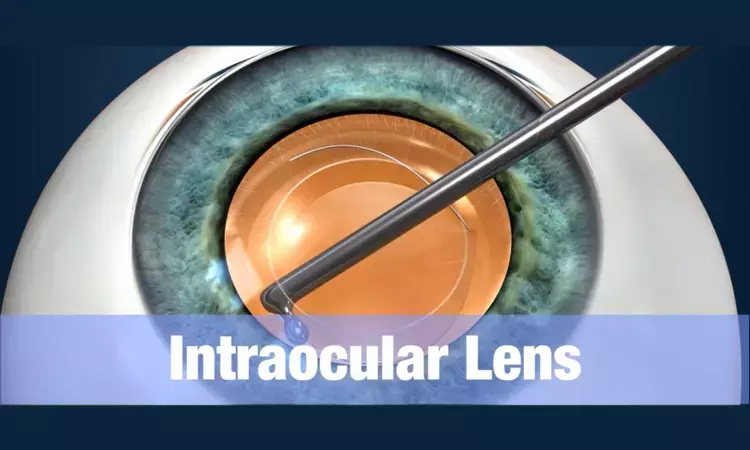- Home
- Medical news & Guidelines
- Anesthesiology
- Cardiology and CTVS
- Critical Care
- Dentistry
- Dermatology
- Diabetes and Endocrinology
- ENT
- Gastroenterology
- Medicine
- Nephrology
- Neurology
- Obstretics-Gynaecology
- Oncology
- Ophthalmology
- Orthopaedics
- Pediatrics-Neonatology
- Psychiatry
- Pulmonology
- Radiology
- Surgery
- Urology
- Laboratory Medicine
- Diet
- Nursing
- Paramedical
- Physiotherapy
- Health news
- Fact Check
- Bone Health Fact Check
- Brain Health Fact Check
- Cancer Related Fact Check
- Child Care Fact Check
- Dental and oral health fact check
- Diabetes and metabolic health fact check
- Diet and Nutrition Fact Check
- Eye and ENT Care Fact Check
- Fitness fact check
- Gut health fact check
- Heart health fact check
- Kidney health fact check
- Medical education fact check
- Men's health fact check
- Respiratory fact check
- Skin and hair care fact check
- Vaccine and Immunization fact check
- Women's health fact check
- AYUSH
- State News
- Andaman and Nicobar Islands
- Andhra Pradesh
- Arunachal Pradesh
- Assam
- Bihar
- Chandigarh
- Chattisgarh
- Dadra and Nagar Haveli
- Daman and Diu
- Delhi
- Goa
- Gujarat
- Haryana
- Himachal Pradesh
- Jammu & Kashmir
- Jharkhand
- Karnataka
- Kerala
- Ladakh
- Lakshadweep
- Madhya Pradesh
- Maharashtra
- Manipur
- Meghalaya
- Mizoram
- Nagaland
- Odisha
- Puducherry
- Punjab
- Rajasthan
- Sikkim
- Tamil Nadu
- Telangana
- Tripura
- Uttar Pradesh
- Uttrakhand
- West Bengal
- Medical Education
- Industry
Primary duet IOL procedure equally effective and safe in correcting vision to single multifocal IOL

Modern cataract surgery facilitates accurate refractive correction and achieves emmetropia (residual refractive error within ± 0.5 diopter) in up to 86% of patients. In the majority of cases, a capsular-bag-based monofocal intraocular lens (IOL) is implanted to improve distance vision, whilst spectacles are required to adjust for near vision. In contrast, multifocal IOLs can generate unaided excellent distant visual acuity as well as enhanced intermediate and/or near vision, enabling spectacle independence. Multifocal IOLs play a key role as surgeons shift to optimize spectacle independence and provide better vision.
A major concern with multifocal IOLs is the presence of unwanted light aberrations where external artificial light generates haloes, glare and contrast sensitivity loss. In rare circumstances, these side effects may become intolerable, leading to an IOL exchange. This is problematic as there are complications associated with IOL exchange procedures, including capsular rupture, vitreous loss and zonular dehiscence.
The primary duet procedure, a capsular-bag-based refractive correcting monofocal IOL with an additional sulcus-based multifocal IOL, offers easy reversibility without interfering with the target distance correction in such circumstances. The risk of surgical complications from a sulcus explant is significantly reduced when compared with an IOL exchange procedure.
The study Harrisberg et al aimed to assess the safety and efficacy of a planned primary duet cataract surgery – a capsular-bag-based monofocal IOL and a sulcus-based trifocal IOL in a reversible platform. Outcomes were compared to traditional cataract surgery with single capsular-bag-based multifocal IOL, of a similar design and optics. Authors found Primary duet IOL procedure was equally effective and safe in correcting distance and near vision when compared with single multifocal IOL in the capsular bag.
This was a Retrospective cohort study. Consecutive patients who underwent primary duet IOL procedures were compared with consecutive patients who underwent single multifocal IOL surgery. Primary outcomes were uncorrected distance and near visual acuities (UDVA and UNVA), refraction and spherical equivalent data. Secondary outcomes included surgical complications.
The study group consisted of 32 eyes (22 toric IOLs) whilst the control group had 57 eyes (29 toric IOLs). There were no statistically significant differences between the two groups on post-operative 1-month and 1-year UDVA (p=0.1522 and 0.4926, respectively) and UNVA (p=0.1248 and 0.2738, respectively). There were no statistically significant differences in the postoperative 1-month spherical equivalent within ± 0.5 diopter (p=0.1891). Postoperative intraocular pressure spikes were observed on day-1 in both groups, with most returned to their baseline at 1-month and all were normal at 1-year post surgery. There were no statistically significant differences in intraocular pressure between the two groups on day-1, 1-month and 1-year after surgery (p=0.6421). There were no statistically significant differences in the IOL axis deviation from the intended axis in the toric subgroup analysis (p=0.5843).
Primary duet IOL procedure, although more complex, appeared equally effective and safe in correcting unaided distance and near vision when compared with an in-The bag multifocal lens. The AddOn sulcus-based platform, as a multifocal design, achieved equal functionality to the placement of a single multifocal IOL in the capsular bag.
Source: Harrisberg et al; Clinical Ophthalmology 2023:17
https://doi.org/10.2147/OPTH.S396472
Dr Ishan Kataria has done his MBBS from Medical College Bijapur and MS in Ophthalmology from Dr Vasant Rao Pawar Medical College, Nasik. Post completing MD, he pursuid Anterior Segment Fellowship from Sankara Eye Hospital and worked as a competent phaco and anterior segment consultant surgeon in a trust hospital in Bathinda for 2 years.He is currently pursuing Fellowship in Vitreo-Retina at Dr Sohan Singh Eye hospital Amritsar and is actively involved in various research activities under the guidance of the faculty.
Dr Kamal Kant Kohli-MBBS, DTCD- a chest specialist with more than 30 years of practice and a flair for writing clinical articles, Dr Kamal Kant Kohli joined Medical Dialogues as a Chief Editor of Medical News. Besides writing articles, as an editor, he proofreads and verifies all the medical content published on Medical Dialogues including those coming from journals, studies,medical conferences,guidelines etc. Email: drkohli@medicaldialogues.in. Contact no. 011-43720751


